Revive 66 Campground: A Soft Place to Land
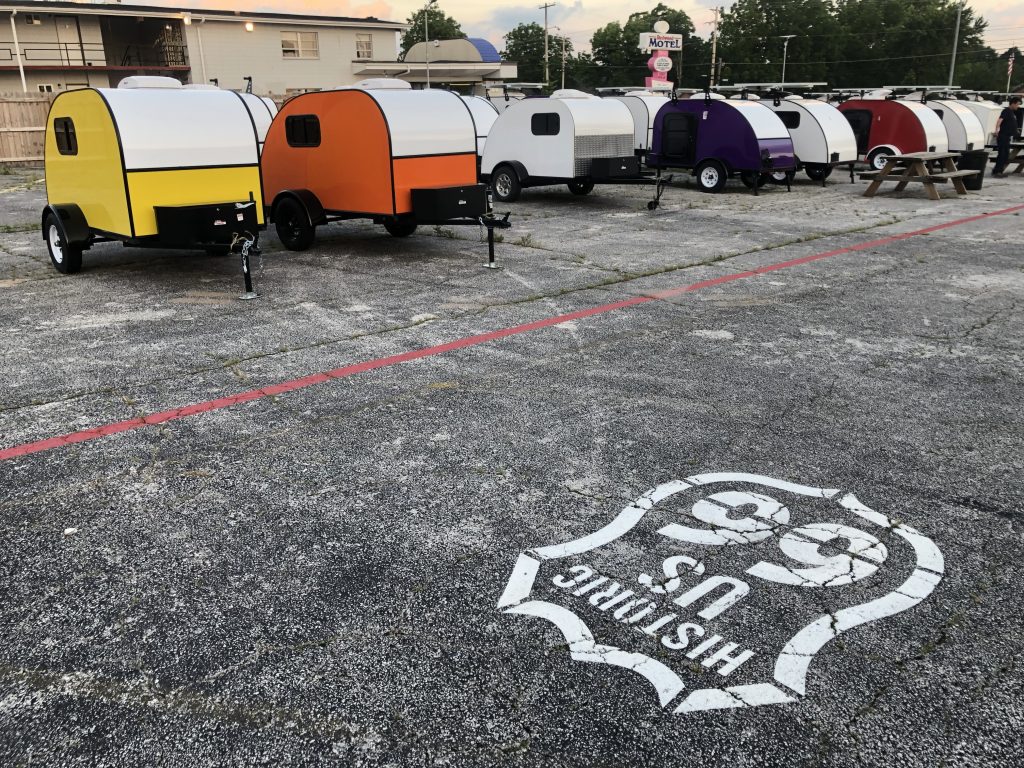
SPRINGFIELD, Mo.–Out on the west side of Springfield, Mo., there is a new campground called Revive 66. It is along a forsaken stretch of Route 66. Some dreams died here. Others moved on. The campground is across the Chestnut Expressway from the Orchard Hills pharmacy and flower shop. The campground is adjacent to the Redwood Motel, a separately owned transient lodge where a sign suggests “Try Jesus.”
Revive 66 is a landing place for the homeless.
It is one of the most innovative projects to serve the homeless in America.
People sleep in one of 43 new solar-powered teardrop campers. It is the first solar-powered RV park in the United States. Six new cottages (less than 80 square feet) are used for couples and handicapped folks. Two teardrop campers and one cottage were designed by Drury University students in Springfield (pop. 167,600). Rent is $10 a night, or 1,000 lucky pennies.
The one-acre grounds include a hippie-inspired 1972 Volkswagen van with a peace sign and “Love” painted on the side and a decorative 1954 Ford Fairlane Crown Victoria. Revive 66 serves a mostly homeless clientele but anyone is welcome. Gates open at 8 p.m. nightly. The campground is cleared by 8 a.m. the next day for cleaning and laundry.
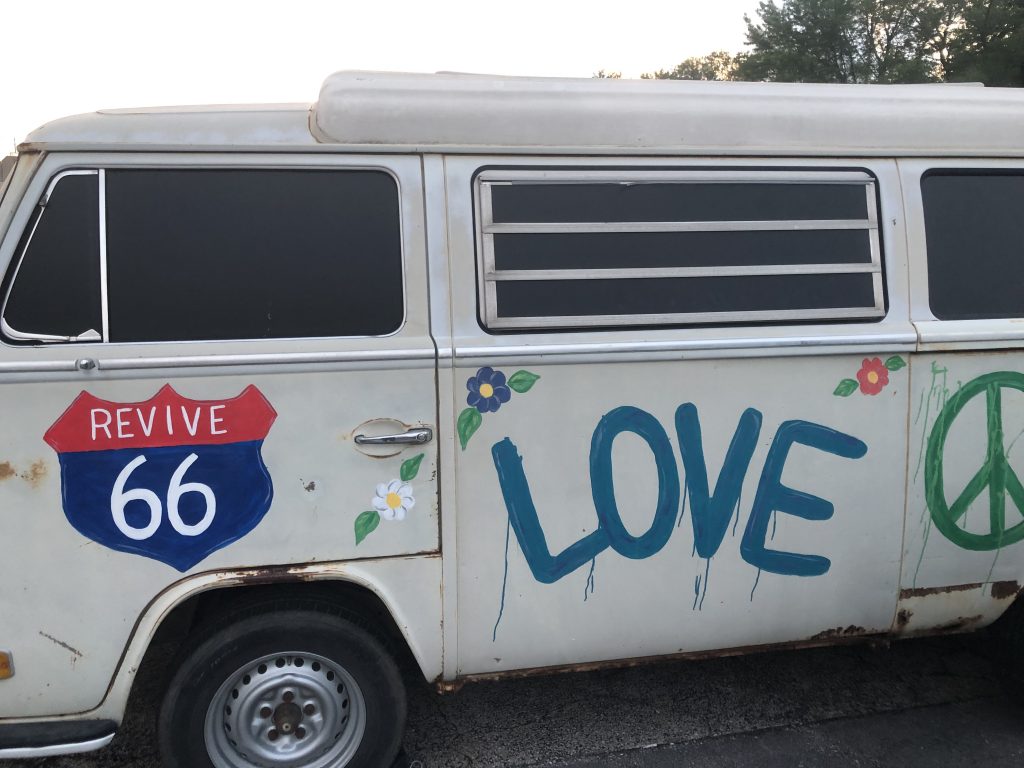
D. Hoekstra photo, 6/6/2022
Route 66 is known as “The Mother Road,” the name John Steinbeck used in his migratory Dust Bowl novel “The Grapes of Wrath.”
Revive 66 is for the motherless.
The campground is an initiative of The Gathering Tree, a non-profit created in 2010 to comfort Springfield’s homeless population. The organization was founded by Dr. David and Linda Brown of Springfield. They were named 2017 Humanitarian Award winners by the Springfield Area Chamber of Commerce.
The Gathering Tree also operates two Eden Villages that offer permanent housing for the chronically homeless. One village has 31 tiny homes and Eden Village 2 has 24 tiny homes.
“Homelessness is not illness related,” Gathering Tree CEO Nate Schlueter said in a late June interview. “It’s not a history in the criminal justice system. It’s not a struggle with employment. The real cause of homelessness is the catastrophic loss of family and the healthy family safety net. If you have a mental illness, they get you to the hospital. You struggle with employment and an uncle with a different last name gives you an awesome reference. Our homeless friends don’t have that. That’s why community is important. If you go to a great RV park in America, the first night you pull up, there’s an innate sense of community.”
By January of 2020, the Gathering Tree had 200 applicants from homeless people that applied to live in Eden Village. “And we were full,” Schlueter said. “We could never build housing quick enough to meet the demand. Our mission is to build relationships in communities with the homeless. But our vision is for a city where no one sleeps outside. The reality became that some people aren’t ready to live in a neighborhood or be good neighbors. But that didn’t mean they didn’t deserve a good night’s sleep.”
The group pivoted to something more immediate and come-as-you-are. They learned that along Route 66 there was still historic zoning that allowed for campgrounds. There would be no need for a city council vote or rezoning. Revive 66 is on the site of the since-razed Grand Fortuna, a family-owned Chinese restaurant. The family had put the property up for sale.
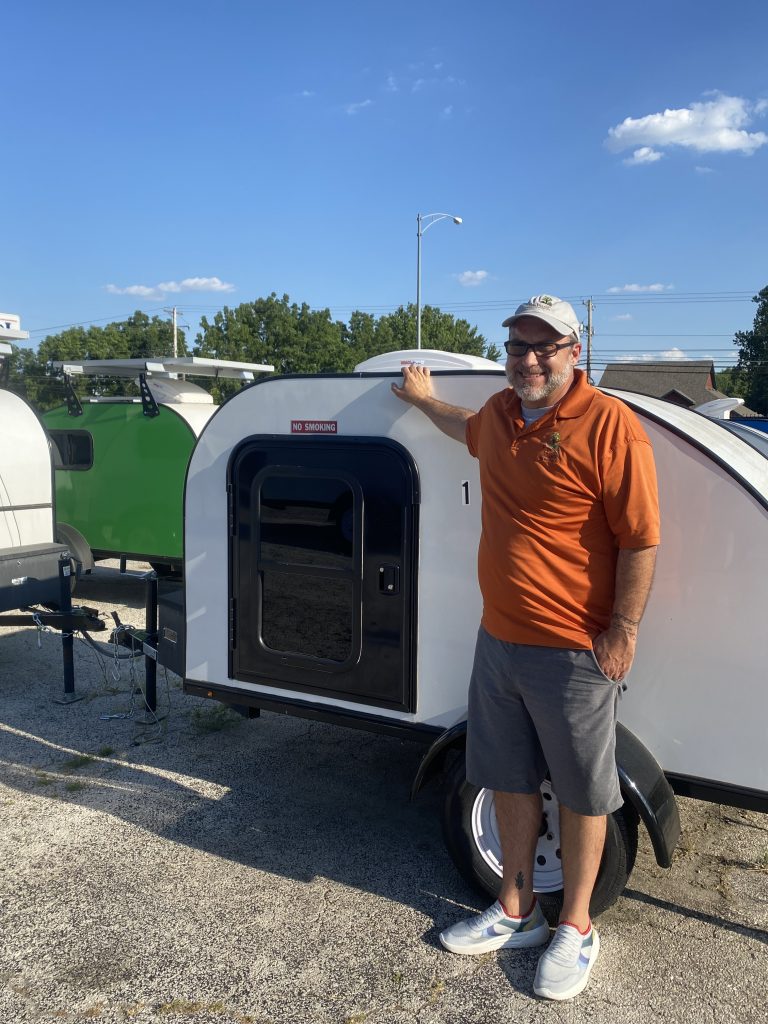
Nate Schlueter, CEO of Eden Village at Revive 66. (Provided picture.)
Revive 66 opened on the space in February 2021. “We designed our teardrop trailers and then COVID came,” Schlueter said. “So we redesigned the trailers to be deeply sanitized. We raised money for a laundry, restroom, and shower facility (in large trailers). We built everything on wheels because local municipalities don’t have jurisdiction over vehicles. The state does. Fewer permits equal less bureaucracy.
“You get in first if you have money ($10). You get in second if you have a voucher (given through advocates at Eden Village).”
When I visited Revive 66 in mid-June I was told some clients line up as early as three in the afternoon, five hours before gates open. Bronta Chapman was the on-site coordinator who checked people, answered concerns, and kept an eye on things. “Tonight we have people from Texas, Louisiana, Oregon,” he said during my visit. “Most people have been homeless in other places. When they land here, it’s ‘Wow! I didn’t know people had resources like this in the homeless world.’ Myself? Why would you stop in Springfield? I’m from Memphis. This is a new world for me.”
I could have stayed in my tricked-out camper van at Revive 66, but there is nowhere to plug in because the campground relies on solar power. “Anyone can stay in our cottages,” Schlueter said. “Sometimes people get laid over at the Greyhound bus station. Hitchhikers. That’s Route 66. We get people who are in domestic type struggles, a fight with a boyfriend. Families with kids are rare, but they stay in the little cottages.
“But it’s 95 percent homeless people. A homeless shelter demands that the average person turns their head away from it. They don’t feel comfortable. Our campground, the solar power, the vintage cars, the old signage. It demands you turn your head and look at it. It changes people’s perceptions.”
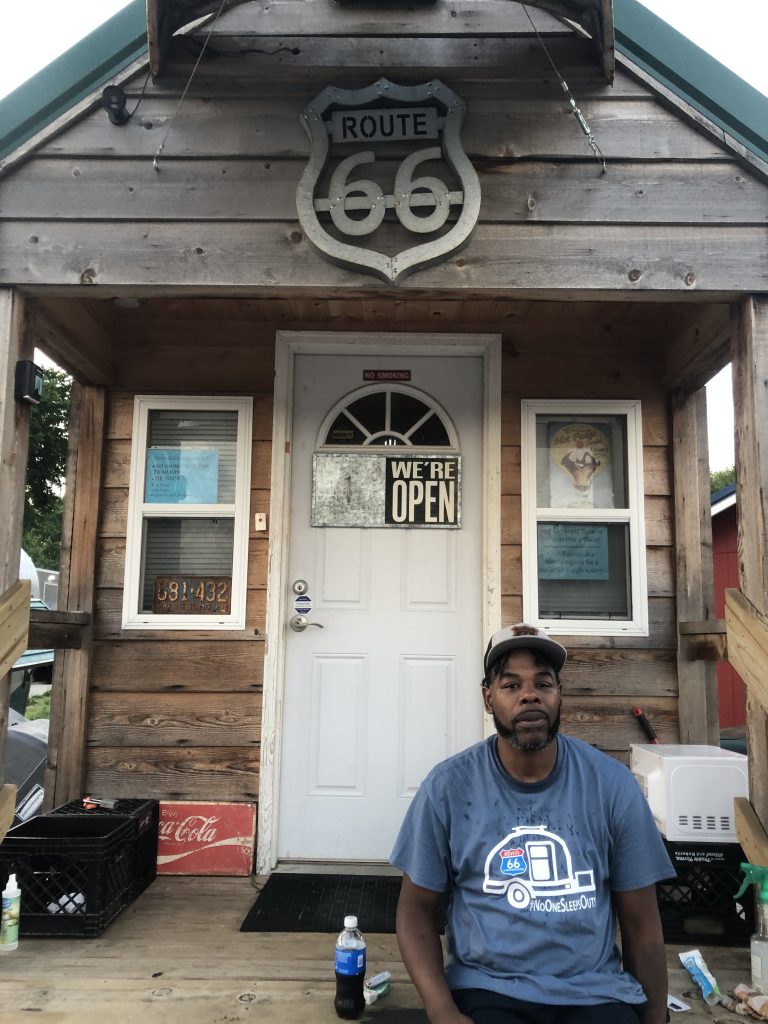
Campground coordinator Bronta Chapman at the check-in station. (D. Hoekstra photo.)
If things break with grand fortune, a Revive 66 camper could qualify for housing at Eden Village.
“Once you get a good night’s sleep sometimes you have a moment of clarity,” Schlueter explained. “And we both wake up one day and say, ‘We think you would be a good neighbor in the village.’ We give them an application and walk them through the process. The campground is come as you are. At Eden Village, you can’t be a super user of methamphetamine and be a good neighbor.”
Eden Village has three basic rules: no crime, no drugs, and be kind. Revive 66 has the same rules along with campground manners such as respecting quiet time.
The Springfield Eden Village/Revive 66 model is unique. Gathering Tree created the model and now they are looking at similar non-profit operations across the country. I talked to Schlueter before he was to make a presentation at a fundraiser in Richmond, Va. This week he is speaking at the annual convention for the National Alliance to End Homelessness in Washington, D.C.
“I just left Wilmington, North Carolina because we’re trying to open a campground there that would comply with existing zoning,” he said. “Our idea is to open an indoor campground hotel in a warehouse district. There are no other Revive 66s right now, but there will be in the next year in Wilmington and maybe Kansas City (Mo.). I have ten cities in nine states that are doing Eden Villages and they are at different levels of construction and land acquisition. Revive 66 is our model based on the demand of Eden Village.
“How do you say no to people when you only have so many homes?”
I wondered if the model could work in Chicago, where homelessness is a serious issue.
“It could work in any city,” Schlueter answered. “It is a decent solution to a good night’s sleep. It doesn’t end homelessness. But it gives people opportunities. If you get to sleep, you can start thinking about getting case management and doing some things.”
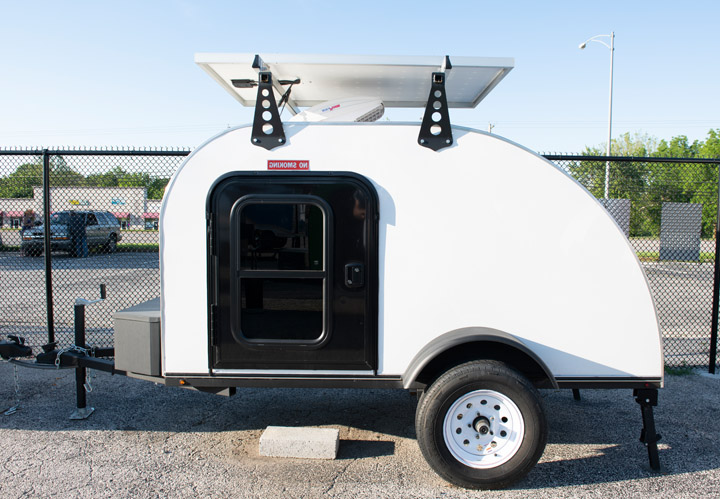
Revive 66 camper
I’ve been to Springfield so much for our “Center of Nowhere” documentary on Springfield culture that the historic and modest Best Western Route 66 Rail Haven is my second home. I’ve witnessed meth problems, especially in downtown Springfield and along stretches of South Glenstone Avenue.
“In my opinion, the bigger the city is, crack cocaine would be the drug of choice among the homeless,” said Schlueter, a Springfield native who has also worked in the homeless non-profit sector in Austin, Tx. “In Springfield, and it has been a historical Ozark issue, methamphetamine has been the drug of choice at a low-budget level. ‘I’ve got five bucks, I have a mental illness and I’m unmedicated–I’m on meth.’ When I was working in other cities it was fate incarnate, all bets were off. If you encountered somebody on crack, they could be super nice and in an instant, there could be an issue. You have to be aware of your surroundings.”
I visited Revive 66 without a notebook. I did not take pictures of campers out of respect. On a warm summer night, I found the population to be engaging and even hopeful. One middle-aged woman told me, “We’re not bad people.” Another transient from Southern California told me he came to town to look for family in the Springfield area.
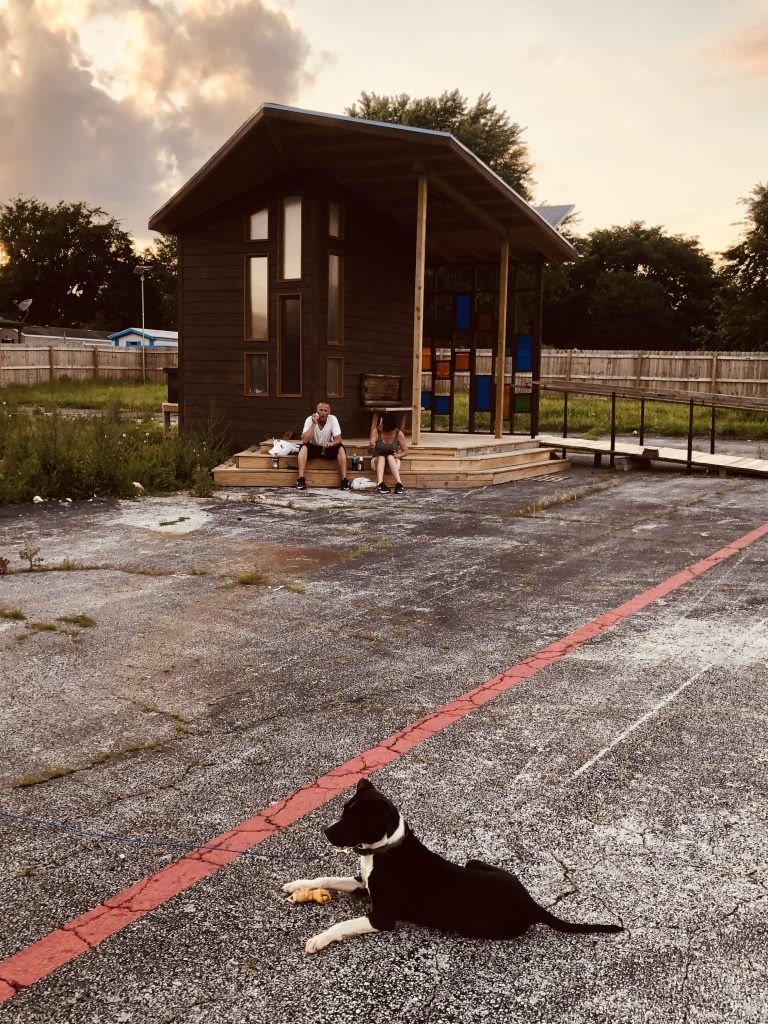
Route 66: 6/6/2022
(D. Hoekstra photo.)
I noticed Psalm 66.5 in small print on the campground sign. Schlueter reflected, “It essentially says to come see the awesome things God has done for his children.” About 10 Springfield area churches support the programs on different levels. “The majority of our funds and volunteers are individuals in the community,” he said.
Miranda Barrows has lived at the original Eden Village for three years. She is 31years old. She entered the system after visiting the original Gathering Tree drop-in center in downtown Springfield. “I’m from a little bit of everywhere,” Barrows said in an early July phone conversation. “Foster care mainly. I didn’t move to Springfield until I aged out of the foster care system (at age 18.)” The National Alliance to End Homelessness reports that 50 percent of the homeless population spent time in foster care.
“Shortly after I got involved with Gathering Tree I was struck by a truck (on the Chestnut Expressway in Springfield) while I was six months pregnant,” Barrows said. “We were going to get some food. We were living outside. I was with the father of my daughter.” Her right femur was broken as were two vertebrae in her neck. Her kidney and liver were lacerated.
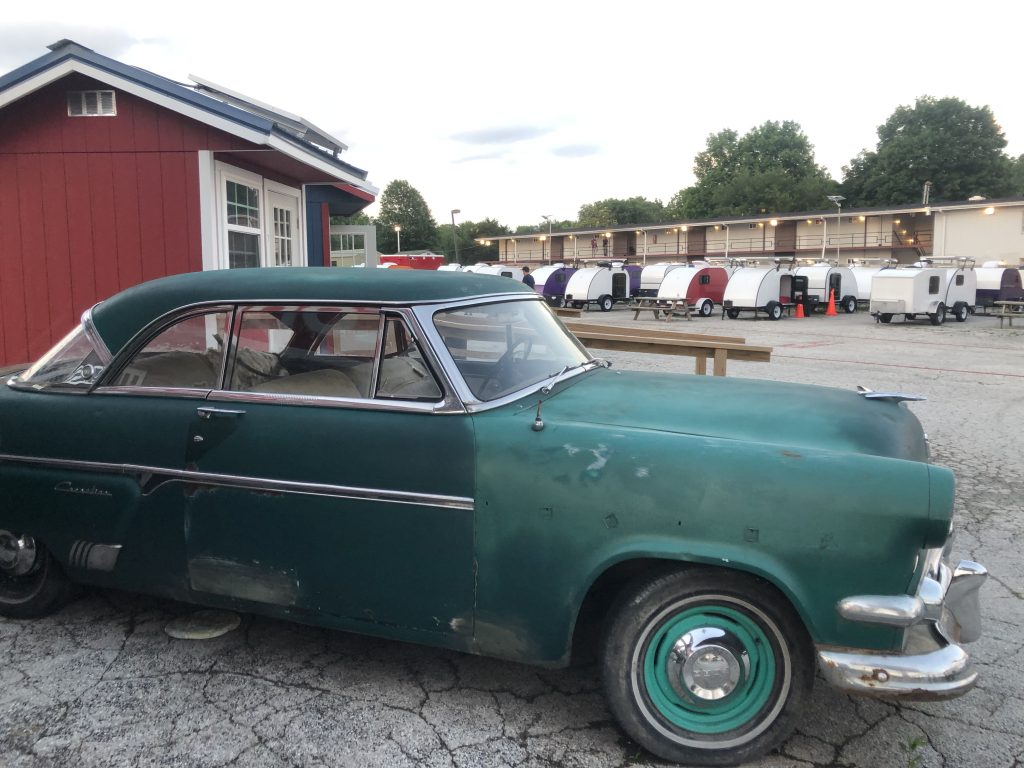
Decorative 1954 Ford Fairlane at Revive 66 (D. Hoekstra photo.)
Barrows volunteered at Revive for a few days but lasting physical issues from the accident made it difficult to continue. “I couldn’t keep up,” she said. “She hit me at about 45 miles per hour, I rolled up on the hood then I rolled off and she ran me over and dragged me eleven more feet. My daughter was born. She lasted a couple of hours and passed away. She’s actually in a crematorium at Eden Village (memorial garden).” Barrows is no longer with the father of her daughter.
“Eden Village is a great place,” she said. “I have my TV. We have a community garden. I know all my neighbors. At one point in time, we were all homeless. It’s a basic understanding of how hard it is. Barrows pays $325 a month which includes utilities. Access to a community center and 24-hour laundry are included in the rent. She is now working on a nonprofit food truck called No Reservations. “I can’t complain,” she said. “I’m going to start culinary arts at OTC (Ozark Technical Community College in Springfield) this fall. Things turned around for me. I went through a dark spot, really alone. When good things come into your life after a long bad period sometimes it takes a second to realize it’s not going to fall out from beneath you.”
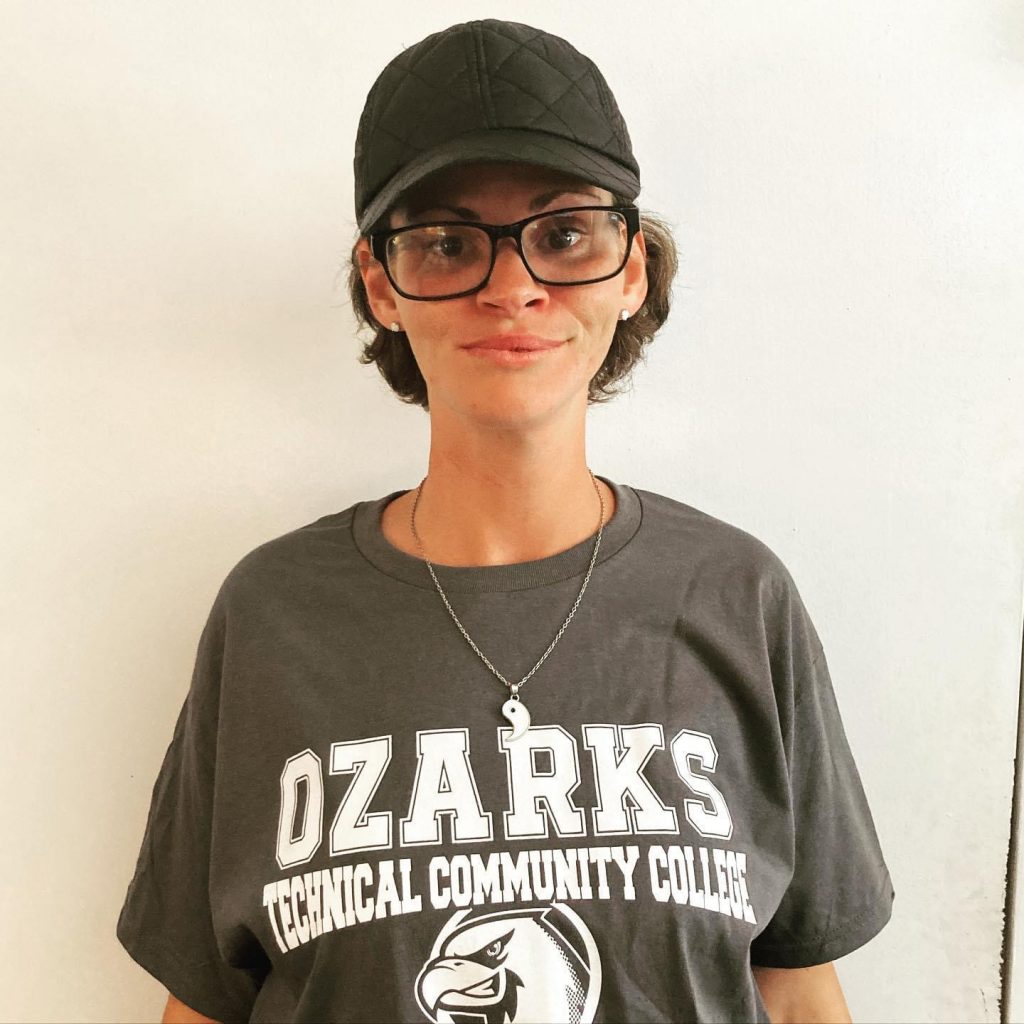
Future culinary arts student Miranda Barrows (Provided photo.)
Barrows said the homeless problem in Springfield has gotten worse since the pandemic started. She said, “It’s a lot harder for people to pay bills. Unfortunately, the resources we have in Springfield can’t help everybody. Evictions. Having IDs and government papers—it’s very hard to hold onto when you’re homeless. You need a secure place to keep your stuff. If you don’t have those things you can’t file for government housing.”
Schlueter said that the rate of acceptance towards the “residentially challenged (as Barrows put it) from Revive 66 neighbors runs about 50-50. “Some love it, some hate it,” he said. “It was zoned correctly so they can’t shut us down. If I don’t like McDonald’s but McDonald’s has the correct zoning, I don’t get to go cuss out the manager and get the city to shut them down. They try to do that sometimes with us. The city supports us. It reduces crime. It’s cooler to look at than a homeless shelter.”
“Maybe ten percent (of clients) come in with a little attitude based on something that happened during the day. That ten percent who are messed up ruin it for the 90 percent that is trying to get through. The neighbors encounter one bad apple and everybody gets lumped into it. That’s how we perceive groups in various settings and it’s not limited to homelessness. You build relationships with people different than you then you start changing your mind about preconceived assumptions.” Some Revive 66 neighbors have volunteered at the campground. Another group of neighbors delivers breakfast every Wednesday.
Most of the new teardrops came from Center Creek Teardrops in Carl Junction, Mo. One of the Gathering Tree board members was a professor of architecture at Drury University. Drury students designed a home at Eden Village, the Revive 66 cottage, and two campers. The units deploy light and bright colors to uplift the spirit.
“The students built a home that meets FEMA (Federal Emergency Management Agency) requirements at Eden Village because they knew a deaf resident would not hear a tornado siren,” Schlueter said. The Eden Village homes weigh about 24,000 pounds each. The double studded wood frame for deaf residents weighs 42,000 pounds. The Eden Village heavyweight is the first park model tiny home that meets FEMA F-5 standards in The United States. It will not blow away.
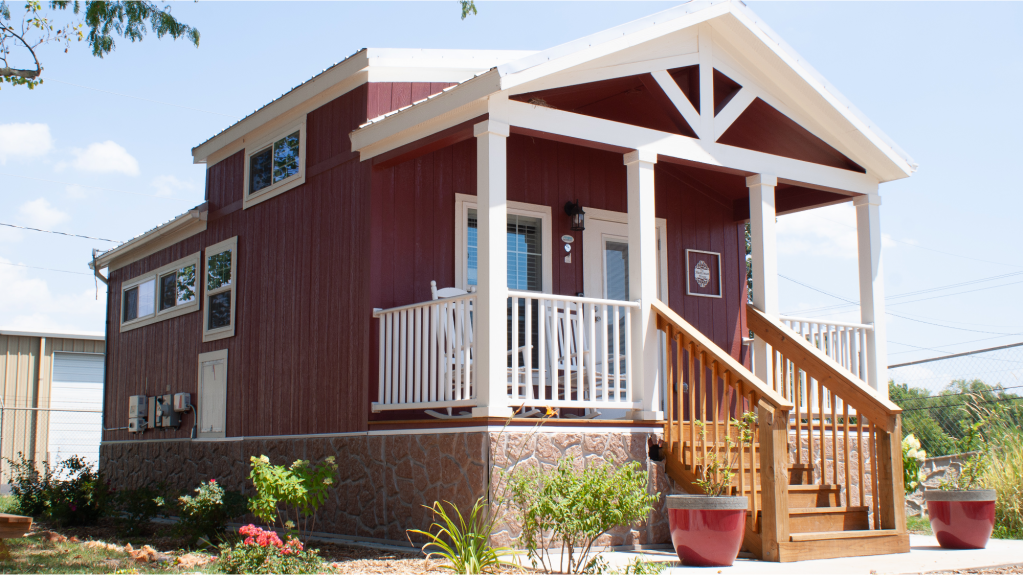
Drury University students designed this one-room Eden Village cottage. (Provided photo.)
“They use cool ideas,” Schlueter said. “In throwback neighborhoods of America like our grandparents lived in, where they talk about riding their bikes and knowing their neighbors—they did that because they were hanging out on their front porch and didn’t have air conditioning. Eden Villages are throwback bungalow homes by design with front porches that face each other so they can have that community safety net.”


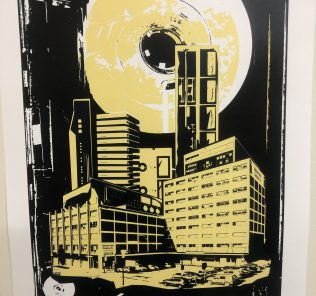
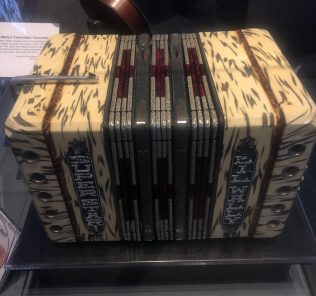

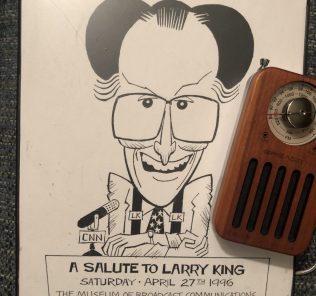



Charles Baxter
Wed, Jul 20 at 1:51 PM
It would be nice if someone would do an investigative report on what goes on during the hours when the Campground is not open. According to Nate, what his campers do then is not his problem, but it certainly is a problem for the residents and business owners of the area. People are sleeping in the park and bus shelters, panhandlers are on most corners and driving on Chestnut Expressway is a game of dodge-the-jaywalkers. You referred to the area as forsaken. The only way it has been forsaken is by our City leaders.
R Baxter
Tue, Jul 19 at 6:24 AM
I saw your article. In my opinion it was very one sided. This area of town used to be amazing; low crime, great schools, and easy access to everything.
After revive 66 was put into place this area has become increasingly uncomfortable to live in.The crime has increased substantially. The amount of times I’ve seen people having sex outside is absurd. The needles and drugs laying in parking lots and parks. I won’t go to the chestnut area after dark alone.
I’m happy to direct you to Facebook groups or some of the police tasked with dealing with the new issues in our area.
Sincerely,
Shannon O’Steen